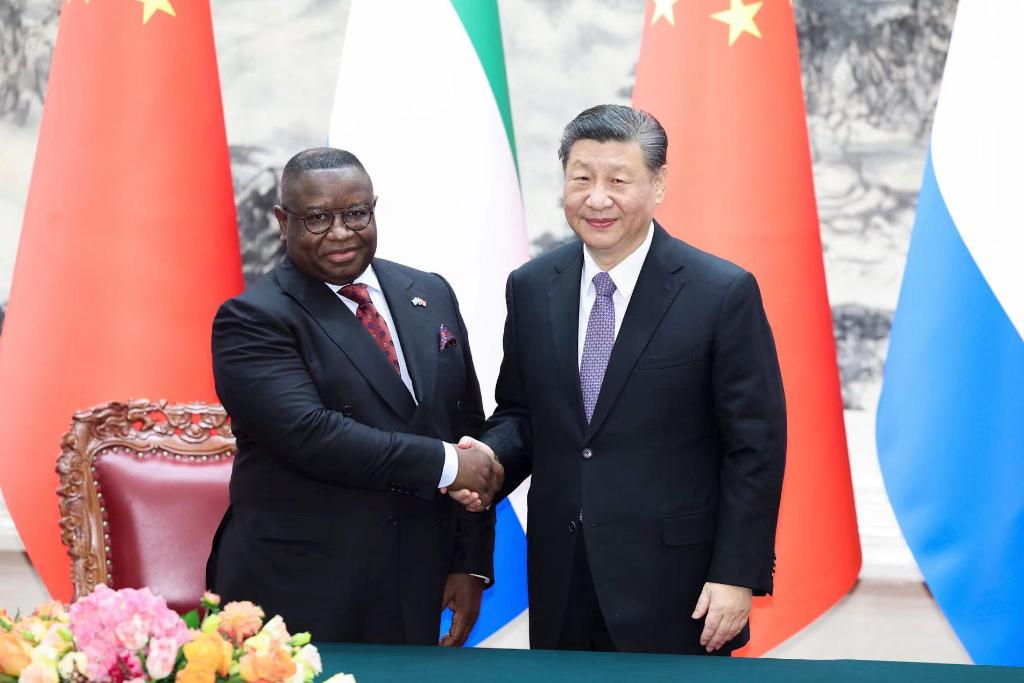By: Sulaiman Aruna Sesay
Sierra Leone President Julius Maada Bio recently visited China to explore opportunities for economic and bilateral ties between the two nations. The visit by the president has come under scrutiny due to the country’s longstanding relationship with China that has already posed some challenges.
Sierra Leone is one of the many African countries that have attracted Chinese investment, and that have been providing China with much-needed minerals such as iron ore. Following the visit, President Bio and China’s President Xi Jinping agreed to cooperate more closely in several areas, including infrastructure, energy, agriculture, fisheries, and tourism.  While the visit represents a step towards economic development and future prospects of Sino-African cooperation, critics suggest that it begs the question: at what cost?
While the visit represents a step towards economic development and future prospects of Sino-African cooperation, critics suggest that it begs the question: at what cost?
The President’s visit to China highlights Sierra Leone’s dependence on China’s financial aid and investment. Over the past decade, China has invested heavily in Sierra Leone’s infrastructure, such as roads, hospitals, and airport expansions, amidst sharp criticisms of China’s neo-colonialist approach to development in Africa. While Sierra Leone’s government aims to use the Chinese investment to create job opportunities and support economic growth, critics argue that Chinese firms have been employing Chinese workers, while poorly or not employing locals.
There are concerns around the impact of Chinese investment on Sierra Leone’s environment and natural resources. For years, China has been exploiting Sierra Leone’s mineral resources such as bauxite, diamonds and iron ore, which have led to environmental degradation. The Chinese investment has led to a lack of sustainability and an over-reliance on mining, leaving the country vulnerable to fluctuations in global markets.
The lack of transparency in the Chinese investment’s terms and conditions raises questions over sovereignty and accountability. Critics fear that the use of loans to fund Sierra Leone’s infrastructural projects has led to Beijing gaining undue financial and political influence over Africa’s policies. According to the Center for Global Development, African nations carrying unsustainable levels of debt to China are Angola, Djibouti, Ethiopia, Republic of Congo, Sudan, and Zambia. These concerns resulted in the African Union suspending its cooperation with China in the construction of a headquarters building in the Ethiopian capital, citing China’s lack of transparency in its contracts and Mandarin-only working language.
President Bio’s visit to China is a positive step towards economic and political development, the long-standing relationship between Sierra Leone and China requires careful consideration. Sierra Leone’s government must ensure that Chinese investment and aid do not come at the expense of the country’s natural resources, sovereignty, and human rights, while China must ensure transparency, accountability and avoid neo-colonialist actions. The relationship between the two nations should be based on mutual benefits, not exploitation.










